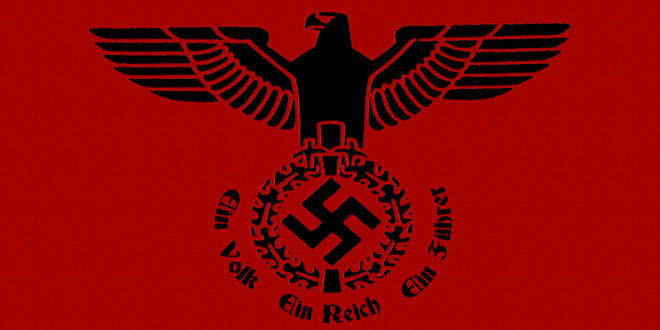Question: Explain the circumstances leading to economic in Germany.
Answer:
- War loans: Germany had fought the war largely on loans and had to repay war reparation in gold. This depleted gold reserves at a time resources were scarce.
- French Occupied Ruhr: In 1923 Germany refused to pay and the French occupied industrial aria, Ruhr to claim their coal.
- Reckless Printing of Currency: Germany retailed with passive resistance and printed paper currency recklessly with too much printed money in circulation the value of German mark fell.
- Hyper Inflation: The crisis came to be known as hyper information, a situation when precis rise phenomenally high and caused hardship amongst the people.
Question: What were the main feature of Hitler’s Geopolitical concept lebensraum?
Answer: The main features of Hitler’s geopolitical concept of Lebensraum or living space were:
- He believed that new territories had to be acquired for settlement.
- The settlers in new lands would be able to maintain intimate links with the place of their origin.
- The new settlements would enhance the material resources and power of the German nations. By capturing Poland, Hitler put his new ideas into practice.
Question:”The history and the memory of the Holocaust live on memories, fiction, documentaries poetry, memorials and museums in many parts of the world today”. Explain the statement with the examples you read in chapter.
Answer:
- The Jesus wanted the would to remember the atrocities and sufferings they had endured during the killing-operations also called the Holocaust.
- The indomitable spirit to bear witness and preserve the documents can be seen in many ghetto and camp inhabitants who wrote diaries kept notebooks and created archives.
- The inhabitants of Warsaw ghetto collected such documents and placed them in milk and along with other containers.
- For eg: Charlotte Berate secretly recorded people’s dreams in her diary later published as the Third rich of dreams. She describes how Jesus began believing in the Nazi stereotypes about them.
Question: What was the German Parliament called?
Answer: German Parliament was called ‘Bundestag’.
Question: Why was the Wiemar Republic not well received by the people of Germany?
Answer:
- The army leaders who were from Junker or noble families were unwilling to be led by people below their social class. The army did not support the Wiemar Republic.
- The Wiemar Republic did not have any charismatic leaders. Friedrich Ebert, the first President of the Weirder Government was not a people’s leader. Instead he was despised by patriotic Germans who saw him as a ‘November Criminal.’
- The bureaucratic transition was not smooth. The government was still stuck in the old monarchy system of the Kaiser. The government could not even do basic things such as trash collection. It appeared as if the government was unable to function to the average citizen. The government had a lot on their plate with stability being such a key concern (as shown by the fact that the constitution was geared towards this by entitling the President emergency powers of being able to rule by decree.)
- The Wiemar Government being a new and inexperienced government had to deal with the complex problem of economic depression. Hyperinflation occurred as the government made the mistake of too much money to pay reparations.The Wiemar Republic had to figure out how to pay reparations.
- Germany had to take loans from the USA to pay reparations and also pay in the form of coal, iron and other resources. As a result, there was a shortage of coal in Germany. Commoners didn’t have enough coal for heating and cooking, which they blamed the government for.
- Germans were very patriotic and proud. The Wiemar Republic did not fulfill many German’s desire for glory. World War One did not make Germans lose faith in their ability to achieve victory.
- Treaty of Versailles: all the handicaps above were in some way or another caused by this treaty.
 Class Notes NCERT Solutions for CBSE Students
Class Notes NCERT Solutions for CBSE Students



